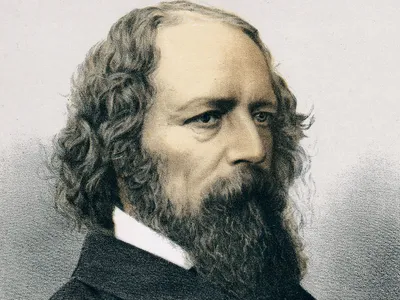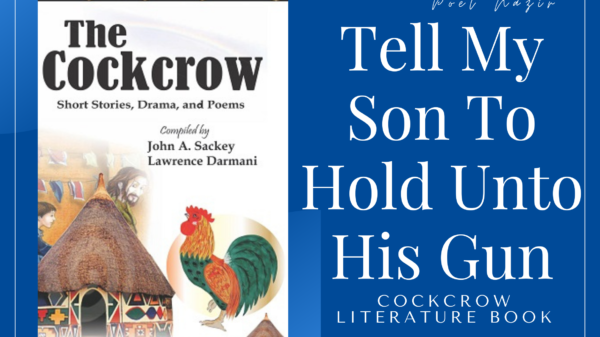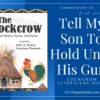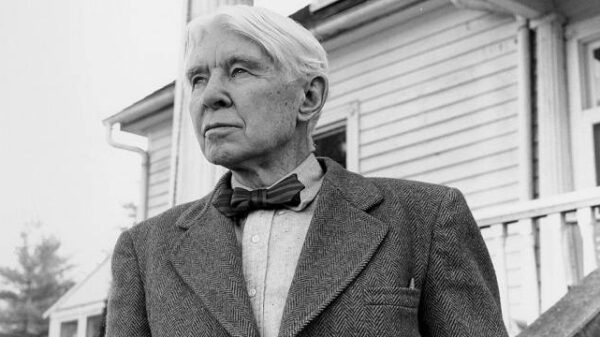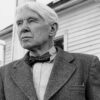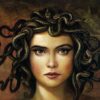‘The Charge of the Light Brigade’ is one of the rare instances of a Poet Laureate producing a good poem while in office.
It was inspired by one of the greatest calamities in British military history: on October 25, 1854, the British Light Cavalry Brigade, comprising some 670 men, charged disastrously against some 25,000 Russian soldiers. Tennyson wrote the poem on 2 December 1854 in response to an article in The Times about the event, and the poem was published in The Examiner a week later, on 9 December 1854.
Read Also: Tithonus a Poem By Alfred, Lord Tennyson
Tennyson condemns the charge (and resultant heavy casualties suffered by the Light Brigade) as a terrible ‘blunder’, but praises the bravery and nobility of the soldiers, the ‘Noble six hundred’, who obeyed their orders and charged to their deaths. (The original report had the number at nearer 600 men, although it later emerged that the exact number was nearer 700.) An estimated 278 soldiers were killed or wounded in the charge.
As with much war poetry – and ‘The Charge of the Light Brigade’ is, after all, a war poem – Tennyson uses biblical allusions to bring home the grand sacrifice made by the soldiers: ‘the valley of death’ is from the 23rd Psalm (that’s the one that begins ‘The Lord is my shepherd…’): ‘Yea, though I walk through the valley of the shadow of death, I will fear no evil: for thou art with me; thy rod and thy staff they comfort me.’
Read Also: The Lotos-eaters a Poem By Alfred, Lord Tennyson
As well as contributing to the sonorous note of the poem, this allusion also offers comfort: men may make blunders, but the Lord will see that good overcomes evil. Many of Tennyson’s Victorian readers would have found such a message comforting, despite some of them – and Tennyson himself – harbouring doubts over the literal truth of Christianity.
The famous line of the poem, ‘Their’s but to do and die’, is often misquoted as ‘Their’s but to do or die’, which gives the poem a different inflection. But Tennyson’s point is that there is no question of whether the soldiers will fail to carry out their military duty, even when presented with such a wrongheaded command to charge. They will do it and die, for queen and country.
Read Also: The Lady of Shalott (1832) a Poem By Alfred, Lord Tennyson
Another line that is often misremembered is ‘Cannon to right of them’, which is sometimes erroneously rendered as ‘Cannon to the right of them’, which disrupts the rigid rhythm of the line (the poem is written largely in dactylic metre): the omission of ‘the’ makes the line sound slightly curtailed and hurried, evoking the rashness of the charge itself.
The absence of ‘the’ from the line also makes it sound a little odd or unnatural, once again suggesting that there is something wrong here. Why are these men, members of this light brigade, being ordered to charge into the heavy cannon-fire of the enemy?
Summary, Structure & Commentary of ‘Crossing The Bar’, a Poem By Alfred, Lord Tennyson
After the charge, not much remains of the ‘six hundred’ who rode into battle – nearly half of them had sustained heavy injuries or been killed, while the other half felt that the whole charge had been a colossal waste of life. Tennyson’s use of the word ‘left’ (‘All that was left of them, / Left of six hundred’) picks up on the word’s use earlier in the same stanza (‘Cannon to left of them’), but shifts the word’s meaning from a spatial sense to one denoting the sacrifice the men have made.
As the old line attributed to Bertrand Russell has it, war doesn’t determine who is right – only who is left.
Cc: Deserved
Poet Nazir is a writer and an editor here on ThePoetsHub. Outside this space, he works as a poet, screenwriter, author, relationship adviser and a reader. He is also the founder & lead director of PNSP Studios, a film production firm.

